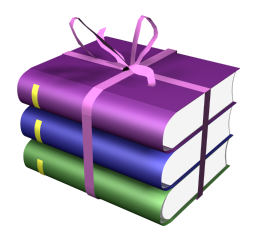Gestapo Interrogation Transcripts: Gisela Schertling and Katharine Schüddekopf (English Edition) [Kindle-editie] beoordelingen het boek quotes
van Denise Elaine Heap
Gestapo Interrogation Transcripts: Gisela Schertling and Katharine Schüddekopf (English Edition) [Kindle-editie]
This publication contains the Gestapo interrogation transcripts and related documents - in English translation - for Gisela Schertling and Katharina Schüddekopf. The two women were arrested in 1943 for their part in White Rose resistance. Gisela Schertling associated primarily with Hans and Sophie Scholl. She met Sophie when the two teenagers fulfilled their Reich Labor Service requirements in Krauchenwies (Swabia). Gisela hailed from a family convinced that National Socialism and Hitler were Germany's salvation. She suffered from an undiagnosed, untreated neurological disorder that made her insecure. When the Scholls befriended her, she hated their politics but needed them (despite Hans Scholl's abusive relationship with her). After Gisela's arrest, she betrayed everyone she had ever met in the White Rose circle. Friends on the fringe who merely lent moral support to the White Rose group were arrested, because of Gisela's denunciation. She believed that if she behaved as a good Nazi, she would receive a lighter sentence. Judge Freisler instead gave her the same sentence the other women in the second White Rose trial received, because 'she should have known better.' Because of Gisela's conscious betrayal, her Gestapo interrogations give us the most accurate depiction of White Rose activities from January 1943 through the arrests on February 18. - Gisela redeemed herself during the third White Rose trial, and recanted her testimony against the four who faced Nazi "justice" on July 13, 1943. Those four men credit her with single-handedly saving their lives by refusing to repeat her testimony against them in open court. Katharina Schüddekopf was Traute Lafrenz's close friend. She was also a doctoral student of Professor Kurt Huber. While Katharina never participated in the heart of their activities, she was almost always present during their meetings and discussions. Crippled from birth, she had tried to gain her Nazi father's favor by throwing herself into National Socialist propaganda work in Berlin. But her mother's anti-Nazi views eventually held sway with Katharina. The Gestapo mocked her by saying in an official report that it was clear that Katharina's sister (a diehard National Socialist) took after her father, while Katharina favored her mother. The White Rose friends had destroyed all remaining leaflets from the first four editions. As they looked to expand their circle in November 1942, Katharina provided them with one of the few surviving copies of the leaflets. Traute took that copy to Hamburg to recruit friends in her hometown. Both Traute and Katharina used Nazi misogyny against their interrogators - both women pretended to be stupid, and led their interrogators down the primrose path. The Gestapo agents were especially frustrated with Traute. They were certain she had played a more major role in White Rose work (she had indeed), but she stayed a step ahead of them during her interrogations. As you will see here, Katharina inadvertently provided them with the only ammunition they had against Traute, when she slipped up and mentioned the single leaflet she had given Traute in November 1942. Traute Lafrenz initially thought Katharina had done this on purpose (Traute Lafrenz suffered more betrayal than most White Rose friends did - even Sophie Scholl gave the Gestapo ammunition to use against her). After the war, these two excellent friends were able to reconcile. Katharina died too young - she had never been well - and Traute's memories of her remain happy and joyful. These transcripts, complete with their boring technical documents, provide an amazing glimpse into the very heart of the White Rose.
Populaire auteurs
Cram101 Textbook Reviews (948) J.S. Bach (447) Wolfgang Amadeus Mozart (305) Collectif (268) Schrijf als eerste een recensie over dit item (259) Doug Gelbert (238) Princess of Patterns (211) Charles Dickens (209) R.B. Grimm (197) Carolyn Keene (187) Jules Verne (183) Philipp Winterberg (180) William Shakespeare (174) Youscribe (172) Lucas Nicolato (169) Edgar Allan Poe (166) Herman Melville (166) Anonymous (165) Gilad Soffer (164) Robert Louis Stevenson (159)Populaire gewichtsboeken
418 KB 425 KB 435 KB 459 KB 445 KB 439 KB 386 KB 413 KB 493 KB 432 KB 455 KB 471 KB 421 KB 451 KB 485 KB 472 KB 416 KB 369 KB 419 KB 427 KB![Gestapo Interrogation Transcripts: Gisela Schertling and Katharine Schüddekopf (English Edition) [Kindle-editie] beoordelingen Gestapo Interrogation Transcripts: Gisela Schertling and Katharine Schüddekopf (English Edition) [Kindle-editie] beoordelingen](http://files-castle.com.website.yandexcloud.net/books/e13aed64b2397ed51fc3ad042ee99d57.jpg)



![The Ecology of Large Mammals in Central Yellowstone: Sixteen Years of Integrated Field Studies (Terrestrial Ecology) [Print Replica] [Kindle-editie]](http://files-castle.com.website.yandexcloud.net/books/47637d5709655a3ac1e00bdbe0023501.jpg)
![American Society: Toward a Theory of Societal Community (The Yale Cultural Sociology Series) [Kindle-editie]](http://files-castle.com.website.yandexcloud.net/books/e656a5ba9beb4980466199f84caa5dc5.jpg)
![An Introduction to the New Testament (The Anchor Yale Bible Reference Library) [Kindle-editie]](http://files-castle.com.website.yandexcloud.net/books/11998361cce2d09b8f5e2d7841aeaf44.jpg)
![The Excavations at Dura-Europos conducted by Yale University and the French Academy of Inscriptions and Letters 1928 to 1937. Final Report VII: The Arms and Armour and other Military Equipment [Kindle-editie]](http://files-castle.com.website.yandexcloud.net/books/b083dbd834371c72fe29483e7fb7a741.jpg)
![Tennyson: A Selected Edition (Longman Annotated English Poets) [Kindle-editie]](http://files-castle.com.website.yandexcloud.net/books/e2d6c6325809631ee40b4c459480131e.jpg)
![Promotional Cultures: The Rise and Spread of Advertising, Public Relations, Marketing and Branding [Kindle-editie]](http://files-castle.com.website.yandexcloud.net/books/2d9f275960c00bed2f2cd3577d4d91dc.jpg)
![Introduction to Time Series Modeling (Chapman & Hall/CRC Monographs on Statistics & Applied Probability) [Print Replica] [Kindle-editie]](http://files-castle.com.website.yandexcloud.net/books/5504443576ef4910627142ec4baea5e0.jpg)
![Robustness in Statistics [Print Replica] [Kindle-editie]](http://files-castle.com.website.yandexcloud.net/books/a0ac649051827c7368c591c5977b005a.jpg)
![Advances in Growth Curve Models: Topics from the Indian Statistical Institute: 46 (Springer Proceedings in Mathematics & Statistics) [Kindle-editie]](http://files-castle.com.website.yandexcloud.net/books/189ec8f2d5ef82f57216fa4d73a5e342.jpg)
![Progress in Partial Differential Equations: Asymptotic Profiles, Regularity and Well-Posedness (Springer Proceedings in Mathematics & Statistics) [Print Replica] [Kindle-editie]](http://files-castle.com.website.yandexcloud.net/books/b31afae00ab76fa3dbc8be90c6334c55.jpg)
![Bayesian Filtering and Smoothing (Institute of Mathematical Statistics Textbooks, 3) [Kindle-editie]](http://files-castle.com.website.yandexcloud.net/books/52c7a1fdcb0f73cd5f1f666f9fdca85e.jpg)
![Forecasting with Exponential Smoothing: The State Space Approach (Springer Series in Statistics) [Print Replica] [Kindle-editie]](http://files-castle.com.website.yandexcloud.net/books/6201219f8a52cb1e3fd4a3ba055439fc.jpg)
![Gestapo Interrogation Transcripts: Willi Graf, Alexander Schmorell, Hans Scholl, and Sophie Scholl. ZC13267. (English Edition) [Kindle-editie]](/img/no-book.jpg)
![Gestapo Interrogation Transcripts: Professor Kurt Huber and Falk Harnack. NJ1704. (English Edition) [Kindle-editie]](http://files-castle.com.website.yandexcloud.net/books/90dbd21a722b95c7382d614e298f9ba4.jpg)
![Third White Rose Trial: July 13, 1943. Eickemeyer, Söhngen, Dohrn, and Geyer. (English Edition) [Kindle-editie]](http://files-castle.com.website.yandexcloud.net/books/a15ad3315caac57d453ed3a5aff40e48.jpg)
![Robert Mohr: Written Memorandum (Annotated) (English Edition) [Kindle-editie]](http://files-castle.com.website.yandexcloud.net/books/b259ddf2cc69f017a84dea9da9f5370a.jpg)
![Rupert Of Hentzau [Kindle-editie]](http://files-castle.com.website.yandexcloud.net/books/21d7445eee750a767b92494acc013b9a.jpg)